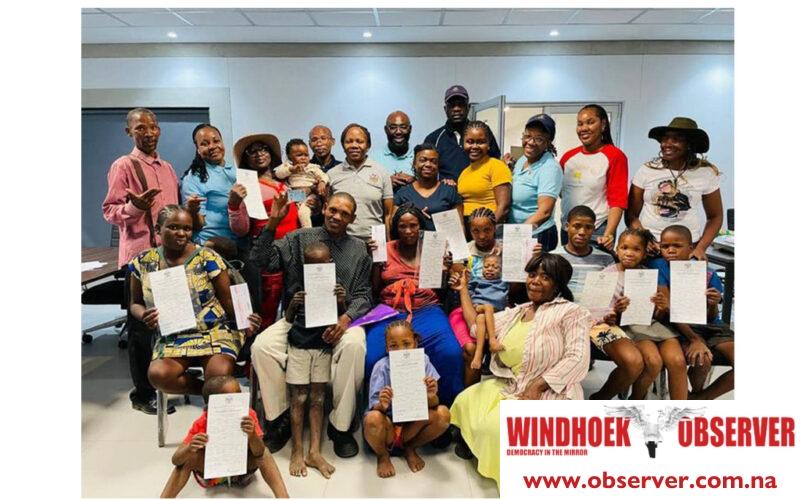Stefanus Nashama
Between October and November of this year, a pilot project in the Guinas Constituency of the Oshikoto region provided national documents to more than 1 000 members of the San community.
Etienne Maritz, the executive director of the Ministry of Home Affairs, Safety and Security, made this announcement on Monday.
“Between 22 October 2024 and 08 November 2024, over 1,000 members of the San community in the Guinas Constituency of the Oshikoto Region were provided with essential national documents, thereby ensuring their legal recognition and access to various government services and benefits,” he said.
The project aimed to address the long-standing issue of national documentation among marginalized communities in the country.
It was conducted in collaboration with the Ministry of Gender Equality, Poverty Eradication, and Social Welfare.
Maritz also announced the registration of 200 San individuals for social grants, such as the old age grant, disability grant, and the orphans and vulnerable children (OVC) grant.
“In addition, as part of this comprehensive initiative, 200 San community members have been successfully registered for social grants, including the old age grant, disability grant, and orphans and vulnerable children (OVC) grants,” he stated.
These grants support the well-being and livelihoods of community members, providing them with access to essential resources for their health, education, and daily needs.
The pilot project was conducted in the areas of Tsintsabis, Oerwoud, Tsumeb, Kuvukiland, Farm Ombili, Farm Ondera, and Oshivelo.
Maritz understands the successful conclusion of the pilot project would not have been possible without the involvement of stakeholders.
“This remarkable milestone would not have been possible without the collaboration and support of the regional leadership, community, community leaders, members of village development committees (VDCs), church leaders and the dedicated teams from both the Ministry of Home Affairs, Immigration, Safety and Security, and the Ministry of Gender Equality, Poverty Eradication, and Social Welfare,” he said.
He further emphasised the pilot project is a model for improving rights and opportunities for marginalized communities in Namibia.
“The government remains committed to ensuring that all Namibians, regardless of their background, have equal access to the services, benefits, and recognition they deserve,” said Maritz.




